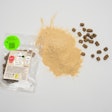Restore and rebuild
The settlements include one for US$24 million that will compensate US and Canadian pet owners whose dogs or cats became ill or died as a result of eating pet food contaminated by melamine and related compounds (MARC). Encompassing about 120 lawsuits filed last year in more than 20 states and provinces, it will reimburse for veterinary care and other expenses. The settlement received initial approval from a New Jersey, USA, judge in late May, with a final hearing scheduled for October.
The other case is a separate US$240,000 class action lawsuit filed by about 2,000 dog and cat owners in Hawaii only, settled in late May.
These settlements mean that the pet food manufacturers that were involved, such as Menu Foods, Del Monte, Nestle Purina and Procter & Gamble, can start to put this painful chapter behind them as they continue to strive to restore consumer confidence and, for some companies, rebuild their business. (Indeed, in April Menu announced its first-quarter 2008 results as a much smaller loss than the same quarter in 2007 - US$2.2 million for the three months ended March 31, 2008, vs. US$17.5 million a year ago.)
Game-changing events
Moving forward is always a good thing. But I hope none of us involved in pet food becomes complacent or hopes the industry can return to the same exact state it was in before March 16, 2007. In fact, over the last year I've heard several professionals comment that as unforeseen as the melamine contamination was, it's not likely to be the last such unpredictable, scary and potentially game-changing event. "We don't and possibly can't know what else is out there," is a common sentiment.
And the pet-owning public seems to share the same concerns. A report released earlier this year by WeatherChem shows that many pet owners have lost trust in brands they've been feeding for years and are still looking for assurances on pet food packages and labels.
Though the number and emotional intensity of blog postings and responses about the recalls and pet food in general have declined from their high this time last year, it is still not unusual to see consumer comments disparaging specific brands, companies or the industry overall. We still have a ways to go to regain the trust of many pet owners.
Learning the hard way
Considering all this, pet food manufacturers should continue to step up their testing, QA and safety programs, and not be shy about promoting those changes. That is exactly how many of you are responding; it seems every month brings a new example.
For instance, Royal Canin recently announced a new infrared system to monitor incoming ingredients to determine if they require further examination. As part of this enhancement of its QA/QC program, the company is also establishing new safety and quality standards for finished products before they enter the market.
A line of Royal Canin Canada specialty foods was included in the 2007 recalls. "We have to protect our customers, and this is what we are doing now," says Xavier Unkovic, CEO. "We learned the hard way. Believe me, that was tough for all of us."
Those lessons learned mean we can never completely get over a situation like last year's recalls nor should we hope to.



















